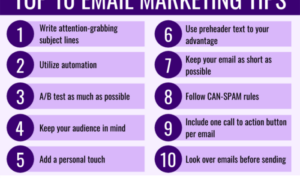Building a Personal Brand takes you on a journey through the digital landscape, where standing out is the name of the game. Get ready for a rollercoaster ride of tips and tricks to make your mark in the competitive market.
In today’s world, personal branding is more than just a buzzword – it’s a powerful tool that can elevate your presence and reputation.
Introduction to Personal Branding
Personal branding is the practice of marketing yourself as a brand. In today’s digital age, personal branding is essential for individuals looking to establish their reputation and stand out in a competitive market. It involves creating a unique identity, showcasing your skills and expertise, and building a strong online presence.
Significance of Personal Branding
Personal branding can help individuals differentiate themselves from others in their field. It allows you to showcase your personality, values, and expertise, which can attract opportunities and help you build a network of supporters. By creating a strong personal brand, you can establish credibility, gain trust, and increase your influence in your industry.
Examples of Successful Personal Brands, Building a Personal Brand
1.
Elon Musk
: Known for his innovative ideas and entrepreneurial spirit, Elon Musk has built a personal brand centered around his work with companies like Tesla and SpaceX. His forward-thinking approach and vision for the future set him apart from others in the tech industry.
2.
Beyoncé
: A powerhouse in the music industry, Beyoncé has created a personal brand that exudes confidence, talent, and authenticity. Her dedication to her craft, combined with her strong work ethic, has made her a global icon and role model for many.
3.
Gary Vaynerchuk
: As a serial entrepreneur and social media influencer, Gary Vaynerchuk has established a personal brand focused on hustle, authenticity, and digital marketing expertise. His no-nonsense approach to business and life has garnered a loyal following and made him a sought-after speaker and advisor.
Building Your Personal Brand Online
In today’s digital age, having a strong online presence is crucial for building a successful personal brand. Your online presence is often the first impression people have of you, so it’s essential to carefully craft and curate your digital identity.
Creating a cohesive personal brand across different online platforms involves maintaining consistency in your messaging, imagery, and overall tone. This consistency helps to reinforce your brand identity and make it easily recognizable to your audience.
Utilizing Social Media Effectively
Utilizing social media effectively is key to building and promoting your personal brand. Here are some strategies to make the most of your online presence:
- Choose the right platforms: Select social media platforms that align with your personal brand and target audience.
- Create valuable content: Share content that is relevant, engaging, and showcases your expertise or interests.
- Engage with your audience: Respond to comments, messages, and feedback to build relationships and foster a sense of community.
- Showcase your personality: Let your authentic self shine through in your posts and interactions to connect with your audience on a personal level.
- Collaborate with others: Partner with influencers, brands, or other individuals in your niche to expand your reach and credibility.
Identifying Your Unique Value Proposition: Building A Personal Brand

Identifying your unique value proposition is crucial in personal branding. It involves recognizing and articulating your strengths and skills that set you apart from others.
The Importance of Authenticity
Authenticity plays a key role in personal branding as it allows you to be genuine and true to yourself. By staying authentic, you can build trust with your audience and showcase your unique value proposition effectively.
- Be true to yourself and your values.
- Avoid trying to be someone you’re not.
- Showcase your personality and quirks.
- Share your genuine experiences and stories.
Communicating Your Value Proposition
Communicating your value proposition to your target audience is essential for building a strong personal brand. You can do this through various channels such as social media, networking events, and your personal website.
Highlight your unique strengths and skills that differentiate you from others.
- Create a compelling elevator pitch that clearly articulates your value proposition.
- Showcase your accomplishments and success stories to demonstrate your expertise.
- Use visuals and multimedia content to enhance your message and engage your audience.
- Seek feedback from mentors or peers to refine your value proposition and messaging.
Creating Consistent Branding Elements

Consistent branding elements such as logos, color schemes, and tone of voice play a crucial role in defining and reinforcing your personal brand. They help create a strong visual identity that resonates with your audience and sets you apart from others in the crowded digital space.
Tips for Creating a Visual Identity
Creating a visual identity that reflects your personal brand involves several key steps:
- Design a unique logo that represents your values and personality. Make sure it is versatile and can be easily recognizable across different platforms.
- Choose a color scheme that aligns with your brand’s message and resonates with your target audience. Consistency in colors helps in brand recognition and creates a cohesive look.
- Define a tone of voice that matches your brand’s personality and values. Whether it’s casual and friendly or formal and professional, consistency in tone helps in building brand credibility.
Importance of Consistency Across Touchpoints
Consistency across different touchpoints, such as social media, website, email communications, and marketing materials, is essential for strengthening your brand image. It helps in creating a unified brand experience for your audience, builds trust, and reinforces brand recall. By maintaining consistency in branding elements, you establish a coherent and memorable presence that leaves a lasting impression on your audience.
Building a Network and Establishing Authority
Building a strong network and establishing authority are crucial steps in building your personal brand. By connecting with others and showcasing your expertise, you can enhance your credibility and reach in your industry.
Networking Strategies
Networking both online and offline is essential for expanding your reach and building relationships within your industry. Here are some strategies to consider:
- Attend industry events and conferences to meet other professionals face-to-face.
- Utilize social media platforms like LinkedIn to connect with like-minded individuals and industry leaders.
- Join professional networking groups or associations to expand your network and access new opportunities.
Thought Leadership and Authority
Establishing yourself as a thought leader in your niche is key to building authority and credibility. Here’s how you can position yourself as an authority:
- Create valuable and insightful content that showcases your expertise and knowledge.
- Share your opinions and insights on industry trends to position yourself as a thought leader.
- Engage with your audience through webinars, podcasts, or speaking engagements to demonstrate your authority in the field.
Collaborating with Professionals
Collaborating with other professionals can help you expand your reach and credibility. Here are some tips for successful collaborations:
- Identify professionals in complementary fields and propose collaboration opportunities that benefit both parties.
- Share each other’s content and promote one another to reach a wider audience.
- Collaborate on projects or events to showcase your combined expertise and provide value to your audience.












